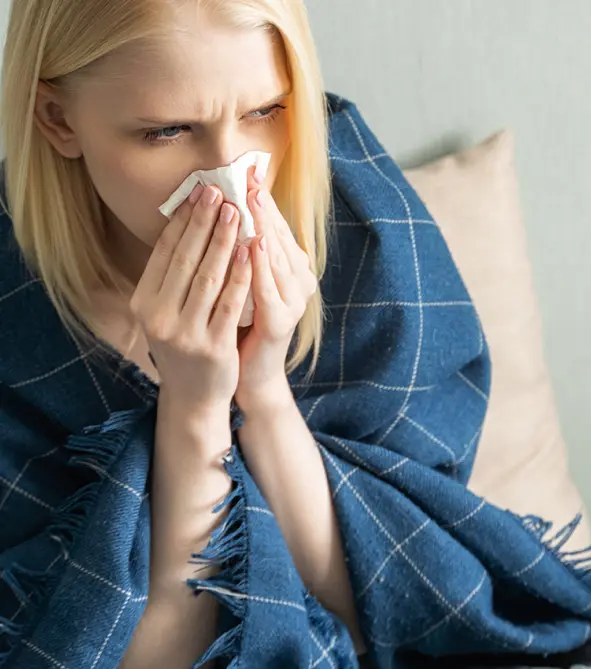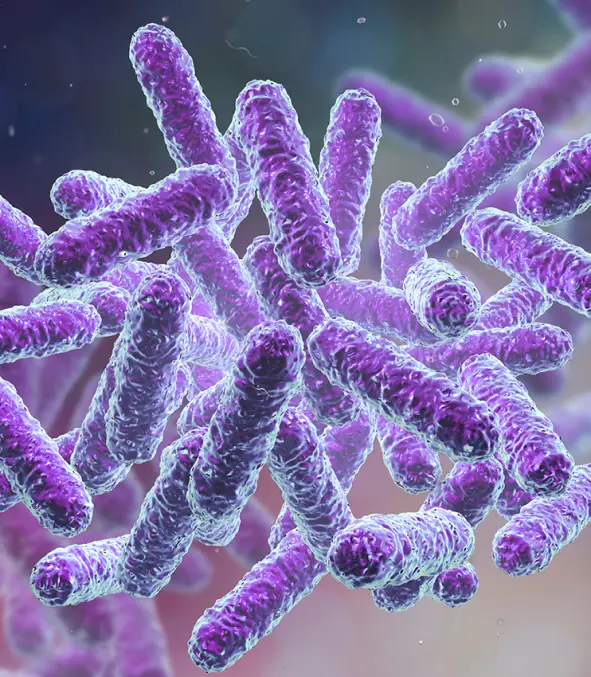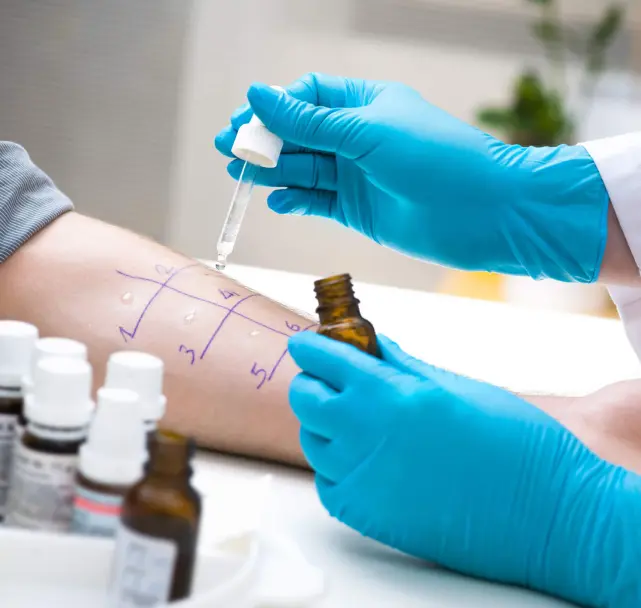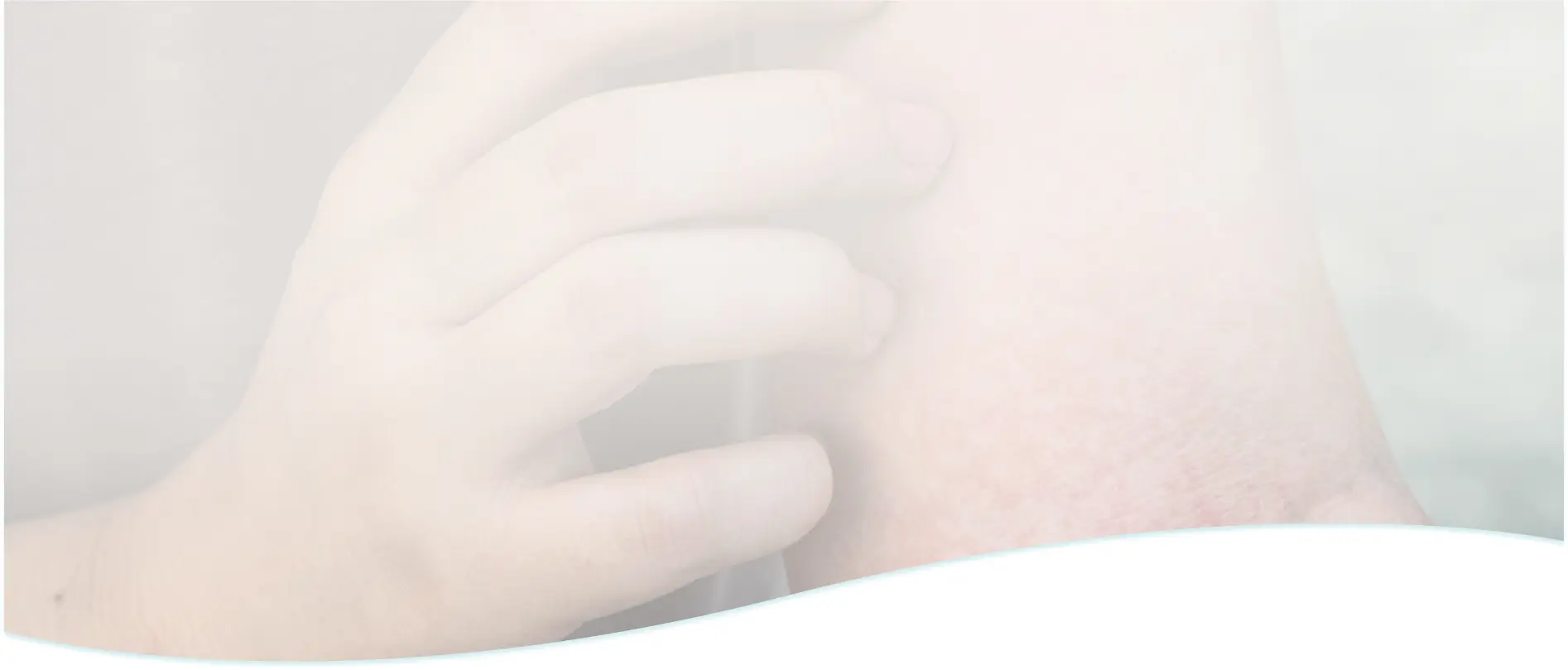
RASH TREATMENT NEWPORT BEACH CA
WHAT TYPES OF RASHES CAN AFFECT THE SKIN AND WHAT ARE THE CAUSES?
At Newport Center Urgent Care, we offer comprehensive treatment for skin rashes. Our facility also provides a range of additional services and is staffed by knowledgeable healthcare professionals.
NCUC EXPERTLY TREATS RASHES
There are many different types of skin rashes, and the best way to treat them will vary depending on the cause. Rashes can be caused by a number of things, including allergies, infections, and even just exposure to certain irritants. Here are some common types of rashes and tips for how to treat them:
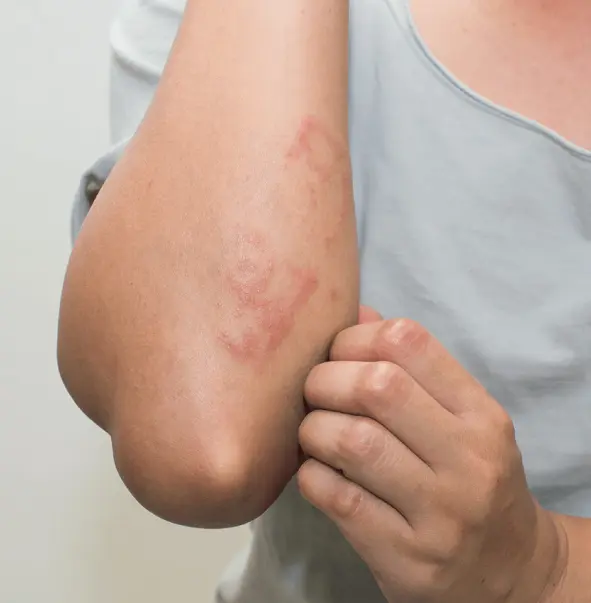
Allergic reactions:
Allergic reactions can cause a variety of skin rashes, from small bumps to large welts. If you suspect you have an allergy, it's important to see a provider to get properly diagnosed. Once you know what you're allergic to, avoiding the trigger is the best way to prevent a rash. If you do come into contact with your trigger, over-the-counter antihistamines can help relieve the symptoms of a rash.
Infections:
Infections, both viral and bacterial, can cause skin rashes. Common viral infections that cause rashes include measles, chickenpox, and roseola. Bacterial infections that can lead to rashes include impetigo and cellulitis. If you think you might have an infection, it's important to see a provider so you can get the proper treatment. Antibiotics may be necessary to clear up a bacterial infection, while viral infections usually go away on their own.
Irritants:
Sometimes, exposure to certain irritants can cause a skin rash. This can include things like poison ivy, poison oak, and poison sumac. If you come into contact with any of these plants, it's important to wash the area well with soap and water as soon as possible. You may also need to use a corticosteroid cream to reduce the inflammation caused by the rash.
Sun rash:
There's nothing quite like a sun rash to ruin a perfect day outside. But don't worry, there are plenty of ways to treat a sun rash and get relief from the itchiness and irritation. First, try cool compresses, or taking a cool bath to soothe your skin. You can also apply aloe vera gel or cream to the affected area. If your sun rash is particularly bad, you may need to use a hydrocortisone cream or ointment. Be sure to drink plenty of fluids and avoid scratching the affected area, as this can lead to further irritation and even infection. If your sun rash doesn't improve within a few days or if you develop any other symptoms, consult with a medical professional.
Other causes:
There are many other potential causes of skin rashes, including autoimmune disorders, hormonal changes, and even certain medications. If you have a rash that doesn't seem to be going away or is getting worse, it's best to see a healthcare provider, so they can determine the cause and recommend the best form of treatment.
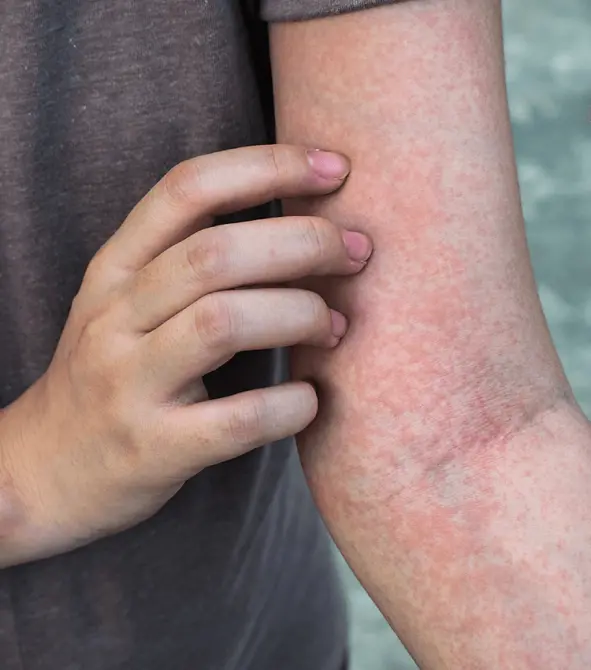
SKIN RASH? UNDERSTANDING HOW TO TREAT AND WHEN TO COME IN...
Our urgent care facility can treat a wide range of medical issues, including treatments for skin rashes. Whether you have a “reddened, irritated rash” or “blisters and scales” we can treat them all at our Newport Beach location in Newport Center.
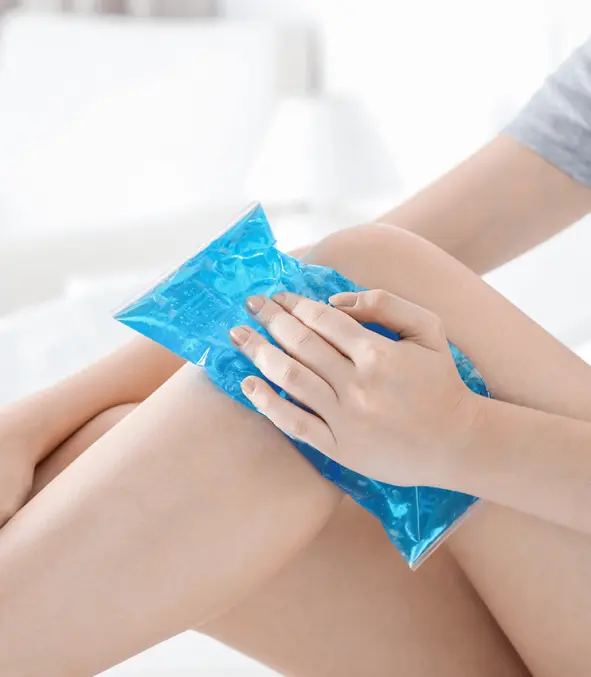
BENEFITS OF COLD COMPRESSES FOR SKIN RASHES
A cold compress is one of the best things you can do for a skin rash.
The cold temperature helps to soothe itching and inflammation, and it can also help to reduce swelling.
A cold compress should be applied for 15-20 minutes at a time, and it can be repeated several times a day as needed. You can make a cold compress by wrapping ice cubes in a clean cloth or by soaking a cloth in cold water.
The cold temperature helps to soothe itching and inflammation, and it can also help to reduce swelling.
A cold compress should be applied for 15-20 minutes at a time, and it can be repeated several times a day as needed. You can make a cold compress by wrapping ice cubes in a clean cloth or by soaking a cloth in cold water.
BEST WAYS TO TREAT A SUN RASH
A sun rash is a skin condition that's triggered by exposure to sunlight. Sun rashes can range from mild to severe, and they usually appear within a few hours after sun exposure. The good news is that there are several things you can do to treat a sun rash and help relieve the itching and irritation.
Cool compress
Apply a cool compress to the affected area. This will help to soothe the skin and reduce inflammation.
Cream or ointment
Try taking an antihistamine to help relieve itching. If the rash is particularly severe, you may need to use a corticosteroid cream or ointment. Be sure to talk to your provider before using any corticosteroid medication, as they can have side effects if used for too long.
Protect the affected area from sun exposure
Finally, it's important to protect the affected area from further sun exposure. Wear loose-fitting clothing that covers the area, and use sunscreen with an SPF of 30 or higher when you go outside. With proper treatment, most sun rashes will clear up within a week or two.
WHAT TO LOOK FOR WITH A SKIN RASH
While most rashes are harmless, some can be a sign of a more serious condition.
So, what should you look for when you have a skin rash?
So, what should you look for when you have a skin rash?
Infection
If the rash is accompanied by other symptoms, such as fever, chills, or body aches, it could be a sign of an infection and you should see a healthcare provider right away.
Allergic Reaction
If the rash is red, blotchy and irritated, it could be due to an allergic reaction.
Meningitis
If the rash appears suddenly and spreads quickly, it could be a sign of meningitis or another serious condition.
Dry Skin
A rash that is dry, scaly, and itches could simply be due to dry skin.
Sunburn
If a rash appears after exposure to the sun may just be a case of sunburn.
Sunburn
If a rash appears after exposure to the sun may just be a case of sunburn.
If you are unsure about the cause of your rash, or if it is accompanied by other symptoms, it's always best to check it out with a practitioner.
STEPS OF TREATING A SKIN RASH
Step 1
Avoid what is causing the irritation
Step 2
Apply an anti-itch cream to affected area
Step 3
Take an anti-itch oral medication (if needed)
Step 4
Apply a cool, wet compress
Step 5
Avoid scratching the rash
Step 6
Soak in a cool, oatmeal bath
Step 7
Cover the area (if possible)
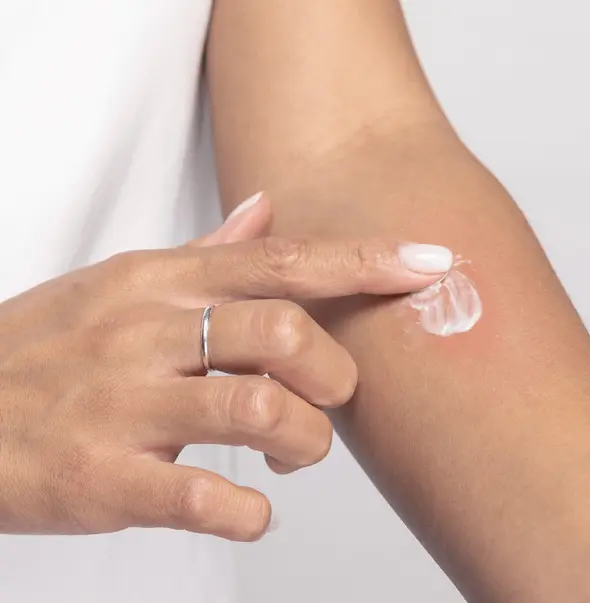
DANGERS OF NOT TREATING A RASH
Rashes can indicate a more serious medical condition
Rashes can be a sign of an infection
Rashes can cause permanent scarring
Rashes can be contagious
THE VERY BEST IN SKIN RASH TREATMENT
Dr. Doonan & his team understand how uncomfortable skin rashes can be. That is why we offer skin rashes treatment for a variety of issues: sun rash treatment, and rash treatment overall.
When you or your loved ones need treatment for a rash, you can trust Newport Center Urgent Care to help you quickly and efficiently. We have the experience and expertise to provide the care you need, and we understand how uncomfortable dealing with a rash can be. We offer extended hours during the week: 8am-8pm, and weekends from 8am-6pm, and are open all holidays.
Conveniently located on the first floor of the parking lot of the Newport Center Medical Plaza, you can walk right in and be seen shortly by our incredible team.
Conveniently located on the first floor of the parking lot of the Newport Center Medical Plaza, you can walk right in and be seen shortly by our incredible team.
(949) 760-8300
FREQUENTLY ASKED QUESTIONS
We know how uncomfortable a skin rash can be, so we are here for the Orange County area to help heal all of your rashes with the right treatment for you.
If the skin rash is caused by poison oak, poison ivy, or chickenpox, you can treat those types of rashes with calamine lotion. It is helpful for sun rash treatment to use aloe vera oil or creams. Otherwise, hydrocortisone cream, or other stronger prescribed creams, help to treat most skin rashes.
The fastest way to clear up a rash is by applying some cold to the affected area. This can be done by taking a cool shower, using a damp cloth, a cold compress, or running cold water on the rash. The cold helps to ease the itch, stop swelling, slow down the progression of the rash, and overall provide immediate relief.
The most common OTC medication that can help with skin rashes is hydrocortisone cream. Also, oat bath products have been found to be very soothing, and can be used in conjunction with hydrocortisone cream.
Some of the main causes of skin rashes are from heat, allergens, infections, medications, and immune system disorders.
You can clear up a rash by using OTC creams, such as hydrocortisone cream, soaking in an oat bath, and applying a cold compress to the rash.
The most common skin disorder that causes a rash is eczema. People with this condition have an ongoing (chronic) outbreak of red, itchy patches on their bodies, which cause the thickening and dryness in these areas.
Other SErvices
Our experienced team at NCUC are fully capable of taking care of all of your urgent care needs for you and your family. Here are some additional medical care services we provide to our patients.
